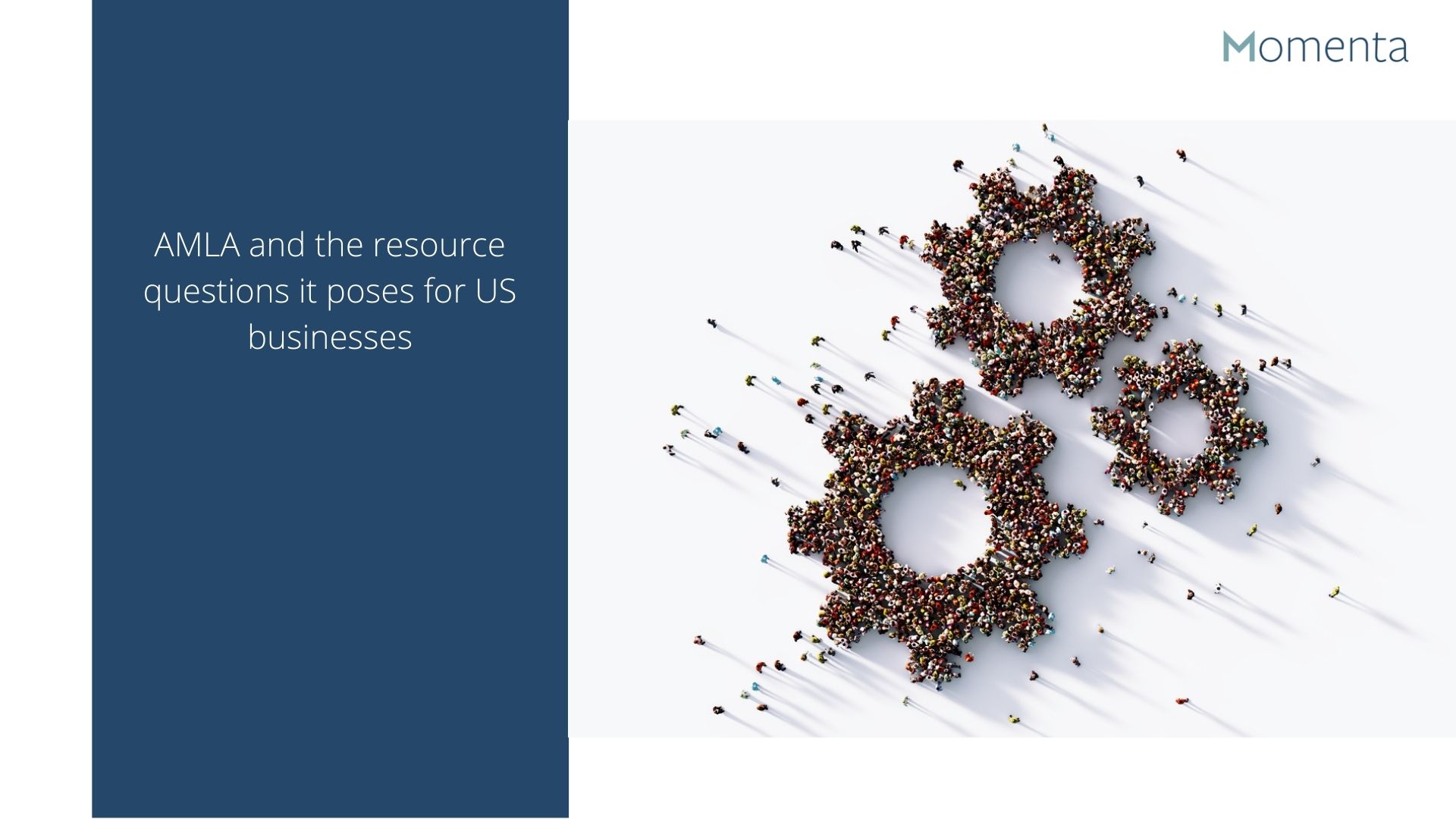AMLA and the resource questions it poses for US businesses
As US business continue to plan, prepare and look-beyond the imposition of the new AMLA act to a world of far greater regulatory scrutiny and procedure, what does this all mean for the requirement to ensure you are prepared with the right resources and talent to deal with this new regulatory landscape?
In this latest Momenta insight, we look beyond the act itself, and ask how, and in what areas, companies across the US should be preparing their team capacity for the new regulations.
Why the Act means greater resource is a must
The AMLA Act will bring with it stringent regulatory updates, meaning more pressure will unquestionably be placed on compliance teams.
To remain compliant, it is increasingly important for financial institutions to undertake detailed assessments, putting measures in place to ensure potential risk is minimised. In such a rapidly evolving industry there is a consistent rising demand for specialist knowledge and skillsets.
In parallel, many financial service institutions have opted to reduce headcount adopting a leaner, theoretically more cost effective, workforce model. However, addressing the requirements posed by AMLA with reduced internal resource and skill sets will present significant challenges.
What resourcing weaknesses are businesses likely to face?
With additional regulatory pressure comes additional risk. Businesses of course must manage this risk appropriately, and because of this need for risk mitigation, Momenta has witnessed a surge in hiring additional resource with compliance and controls-related skills and experience in the US.
Individuals with backgrounds in risk management, compliance, and internal audit are just some of the types of roles that many firms are further equipping their existing teams with, to both adapt to the post-AMLA landscape, and build more robust compliance outcomes.
Technology cannot completely close the skills gap
Many businesses have in the past tried to close the gap between limited resource and a need to remain fully compliant with regulations via automation solutions.
However, as much as technology and automation can lessen your need for human intervention, you will still need the right staff to drive your compliance functions systems and processes.
Automation can and has unquestionably helped many within financial verticals to ensure seamless customer onboarding, purchasing, and has been a help in general to compliance functions as well.
In terms of the administrative side of the business, many technology automation solutions will be more efficient than humans simply because human error can never be fully avoided. But when it comes to digital transformation and the need for speedy adoption, human interaction and QC methods remain vital in the overall compliance process.
COVID of course has undoubtedly created a backlog of work for compliance teams, and many firms have and are still in the process of adopting digital transformation to ensure they can cope with their current workloads.
These types of solutions though really do take time.
It goes without saying that It is not an easy task to fully integrate digital systems and become truly transformative overnight – they take months, often years, to fully permeate and settle into a business as BAU – and crucially, people will still be needed to provide oversight and troubleshooting, as well as ongoing monitoring, as the technology is fully integrated and adopted.
Ultimately, you can have the most advanced KYC processes and systems, but you will still need the right skilled talent to monitor those processes.
Firms should be investing in onboarding the right tech talent now – talent who have key compliance training as well as the necessary skills needed to embrace and adopt new technology and automation. The secret unquestionably lies in finding a balance between the two.
Why Momenta?
The last 10 years or so has also seen a much greater appetite for companies to use external resources and teams to handle some of what we might refer to as more sensitive projects, that previously in the past might have been kept in-house.
Therefore, turning to an outsourced provider to expedite a project, particularly when there is regulatory pressure, is becoming the norm.
It is commonplace for firms to seek both people and a technology solution to either deal with a one-off project or to form a specific turnkey business support function which is integrated into the general business model, and that is exactly what Momenta do.
For over 30-years we have been helping businesses across the globe to build and maintain skilled and diligent teams of talent to add an invaluable extra layer of resource as they manage changing priorities and regulatory landscapes.
We understand what talent is needed for different circumstances and can offer a bespoke and fully managed experience for each of our clients.

